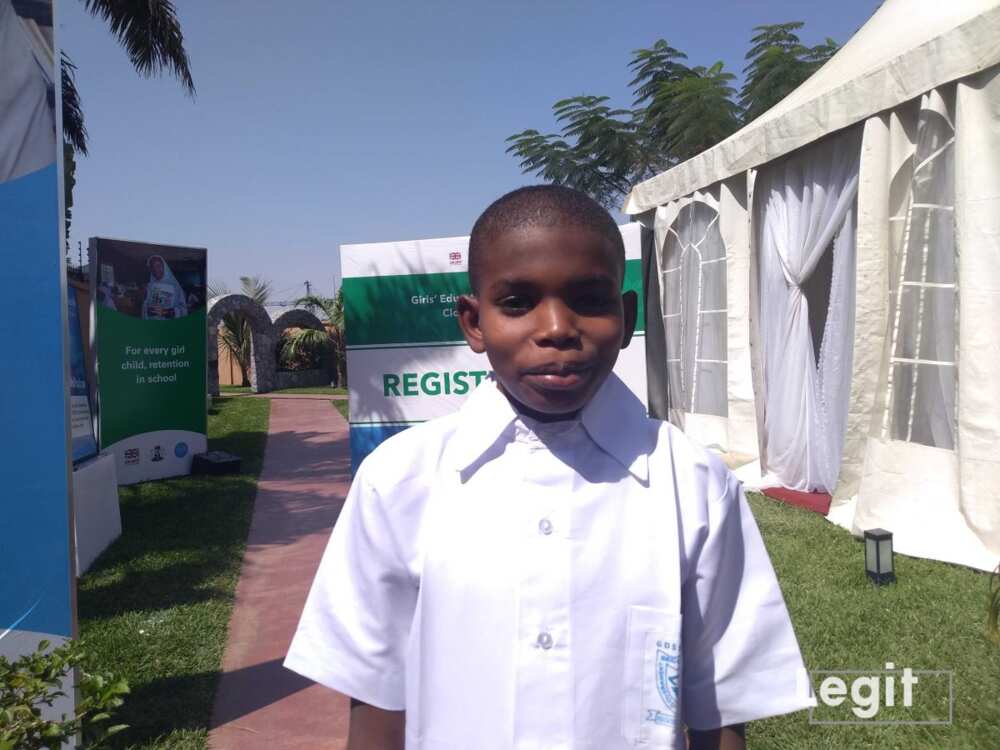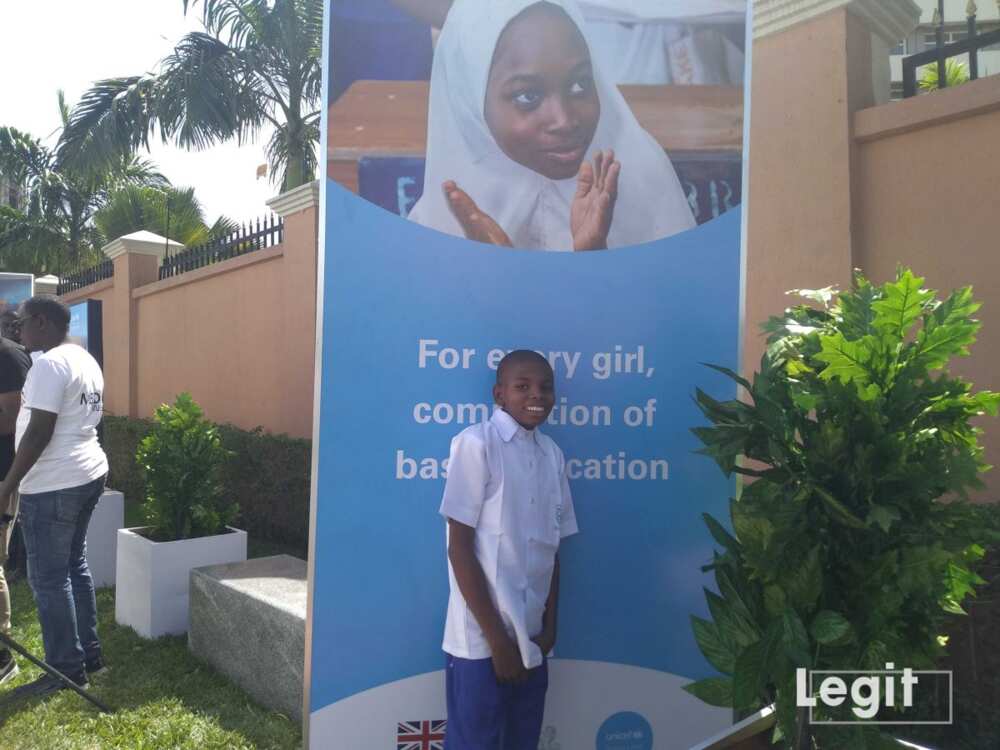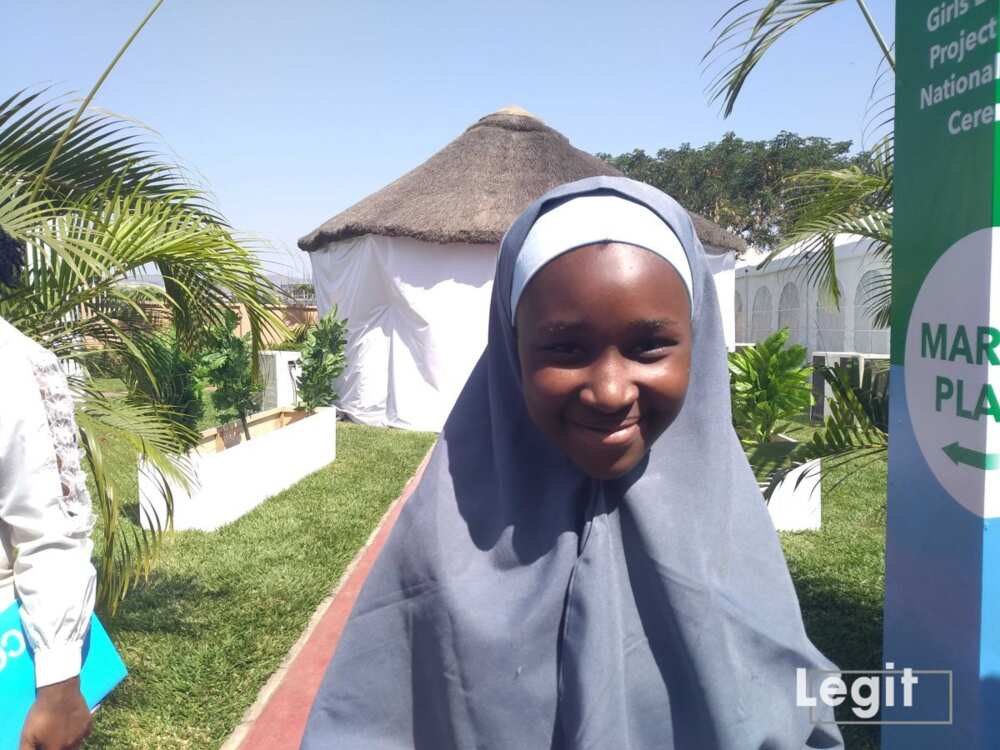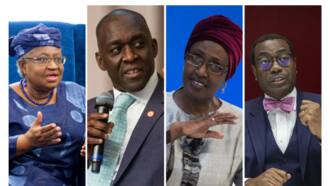'We Need More Girls to Go to School in Nigeria,' Says 13-Year-Old Abdullahi Buhari
- Nigerians have been urged to join in the move to get more girls enrolled in schools across the country
- This call was made by 13-year-old Abdullahi Buhari of Government Day Secondary School Abukur in Rimi Local Government Area of Katsina state
- Buhari's advocacy come as UNICEF in partnership with the Ministry of Education, and the UK FCDO has successfully facilitated the enrollment of 1.5 million girls in schools in northern Nigeria
PAY ATTENTION: Click “See First” under the “Following” tab to see Legit.ng News on your Facebook News Feed!
As Nigeria continues to work towards improving girls' enrollment in schools, 13-year-old Abdullahi Buhari believes that all hands must be on deck to ensure that girls are safe while in their study environment.
Buhari, a Junior Secondary School 1 (JSS) student of Government Day Secondary School Abukur in Rimi Local Government Area of Katsina state said Nigeria needs more girls in school to attain her desired level of development and economic stability.

Source: Original
The teenager made this assertion while speaking to Legit.ng on the sideline of the closing ceremony of the Girls' Education Project (GEP3), an initiative commissioned by the United Nations Children Fund (UNICEF) in collaboration with the Federal Ministry of Education and funding from United Kingdom's Foreign, Commonwealth and Development Office (FCDO).
Buhari said:
PAY ATTENTION: Join Legit.ng Telegram channel! Never miss important updates!
"Now because of He4She more girls are coming to school and we need more and more girls to be in school. We must also make sure we support them and protect them from any harrasemnt and ensure their safety."

Source: Original
Supported with 79 million GBP, the GEP3 project which lasted between 2012 and 2022 aimed to increase the number of girls completing basic education and acquiring skills for life and livelihoods in five states across northern Nigeria - Sokoto, Katsina, Bauchi, Niger and Zamfara with Kano state joining in 2018.

Read also
Governor promises automatic employment to medical doctors, nurses in top northern states after graduation
It also aimed to improve the capacity of teachers to deliver effective quality teaching for girls, increase social and economic opportunities for girls, reduce disparities in education outcomes between girls and boys and improve governance to strengthen girls' education in Nigeria.
Importance of education for girls, their parents and Nigeria before marriage
Like Buhari, Maryam Salmari, a 14-year-old student of Government Girls Secondary School, Dambatta in Kano state believes that girls deserve more opportunities for basic education.
Salmari said:
"Through GEP3 project I have learnt how to take care of myself, and speak out especially when I notice violence against me or another person."

Source: Original
Also admitting that the project has encouraged more girls to go to school, Salmari said:
"Let's take for instance, espcailly in the north, you know some of the girls do not attend school in the rural areas as a result of traditional belief of their parents who say it is better for the girl child to get married.
"So GEP3 had a committee for enlightening the parents and the traditional leaders in the communities on the importance of girls' educaton for the child, their parents and even the community."
UK's commitment to improving girl child education in Nigeria
Also, at the project's close-out event, the British High Commissioner to Nigeria, Catriona Laing, said that the GEP3 initiative has successfully helped in the enrollment of an additional 1.5 million girls in northern Nigeria.
Reeling out some of the successes of the project, Laing said the number of girls who enrolled in primary school increased from seven girls to 10 boys in 2012 to nine out of 10 boys in 2022.
She said:
"It's still a long way to go but we are on the right track.
“Other benefits identified by key players that made the project a success in Nigeria, were the instilling of structured teacher training and exposing girls to mentorship processes such as the 'Girls for Girls' and “'He for She' concepts.
"It also brought about early literacy and intervention.”
This initiative she said has contributed to helping girls take control of their lives, and raise the chances of having more children immunised among many others.
More success recorded
Saadhna Panday-Soobrayan, UNICEF Nigeria's chief educationist while presenting findings from the GEP3 initiative noted that over 60,000 teachers were trained on effective implementation of GEP 3 and 8,000 others were trained on entrepreneurship skills.
Panday-Soobrayan mentioned that some of the contributing factors to the success of the GEP3 included a combination of Conditional Cash Transfers to parents and guardians; partnership with existing community structures and innovative and flexible approaches to education.
These approaches, she said included the use of radio, televisions, and improved learning materials to enhance learning outcomes among the girls.
Some successes recorded with the project are a transformational shift in social norms on girls in various communities across the region, a decline in early marriage and reduced adolescent pregnancies.
Panday-Soobrayan words:
“There is evidence of an increase in gross enrolment of girls in schools and improved gender parity across the targeted states. The gender parity index (GPI) the ratio of girls to boys enrolment increased from 0.73 (baseline) value to 0.78 (midline) and reached 0.97 by the end of the programme.”
Education experts reveal why Nigeria is experiencing low learning outcomes
Legit.ng had earlier reported that experts across the country have called for strategic approaches to improving learning outcomes in school children.
The experts warned that 70 per cent of the children who are currently in school are not even learning.
According to them, there is also a need for all stakeholders in education to work towards ensuring teachers' development bearing in mind, the importance of training and retraining school instructors.
'Over 1 in 3 Nigerian kids have access to Early Child Education,' UNICEF says

Read also
Confusion as Obasanjo speaks on where Nigeria's next 20 million Boko Haram recruits will emerge from
The learning process of children from birth to age eight had earlier been described as the bedrock of their life's development.
This description was given by education experts during a media dialogue organised by UNICEF and the Federal Ministry of Information.
According to experts, early learners must be provided with the appropriate environment for their learning process.
Source: Legit.ng




